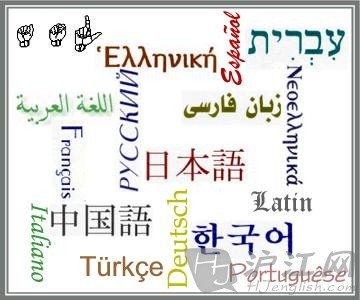Ten most difficult languages to learn in the world

In the international linguistic field, Japanese, Italian and Spanish are recognized as three languages with beautiful pronunciation, among which Japanese ranks first. In linguistics, there is an accepted standard to evaluate whether the pronunciation of a language is beautiful, that is, the ratio of the number of consonants to the number of vowels is appropriate, and it is better to be one to one, such as "さくら", whose pronunciation is [s]a[k]ua (I deliberately put consonants in square brackets). You see, one. On the contrary, look at this English (forum) word script. Its pronunciation is [skr]i[pt], with five consonants and a vowel. In such a language, the pronunciation is ugly. English and Chinese are not the best. If you see that Chinese has the most votes in the voting, it is normal. We are all Chinese, and we will all vote for our mother tongue, so foreigners will not think so.
In fact, among the ten most difficult languages in the world published by UNESCO, Chinese ranks first. Considering that we have all learned the most difficult language in the world, are you afraid of anything else?
Top ten most difficult languages to learn in the world (published by the United Nations)
NO.1- Chinese (China)
NO.2- Greek (Greece)
NO.3- Arabic (Arabic)
NO.4- Icelandic (Iceland)
NO.5- Japanese (Japan)
NO.6- Finnish (Finland)
NO.7- German (Germany)
NO.8- Norwegian (Norway)
NO.9- Danish (Denmark)
NO.10- French (France)
How can a person complain when he can’t understand what another person is saying? People from all over the world have said:
English: "It is Greek to me!" ("It’s just Greek!" )
South African: "Dis Grieks vir my!" (Greek again)
Latin: "Graecum est; Non potestlegi. "(or Greek)
Portuguese: "E grego para mim." (continue Greek)
Polish: "Tojest Dlaminie Greka!" (still Greek)
But there is another saying in Polish: "Tojest Dlaminie Chinszczyzna!" (Chinese)
Dutch: "Dat is Latijns voor mij!" (Latin, this is the most commonly used expression, and unfortunately there are Chinese and Spanish)
So how does Greek, which is surrounded by a large number of people, express this meaning?
Greek: "μ ουιντ α ιννζιο" ("It sounds just like Chinese")
Then Chinese began to be watched:
Hebrew: "Nishma c’moh sinit! "("It sounds like Chinese! " )
Romanian: "Parca e Chineza!" ("It looks like Chinese!" )
Russian: "этодляменякитайскаяг" )
Serbian-Croatian: "To je za mene kineski." ("This is Chinese for me." )
It is said that Chinese is also surrounded by other languages, but no specific explanation can be found, including Estonian, Flemish, Hungarian, Swiss German and Tagalog.
There are also some languages that watch Chinese and other languages at the same time:
Finnish: "Onpas Kiinalainen jutuu!" ("What kind of Chinese stuff is this!" )
Finnish: "Se on minulle taytta hepreaa." ("This is Hebrew to me." )
Hebrew is also often watched:
French: "C’est de l’hébreu pour moi." ("This is Hebrew for me." )
German and Czech like to watch Spanish:
Czech: "To je pro mne Spanělska vesnice."
German: "Das kommt mir spanish vor."
So who is watching in Spanish?
Spanish: "Para mi es chino." (Chinese again …)
Italian onlookers Turkish:
Italian: "Questo e turco per me."
Turkish looks at Arabic: "Anladimsa arab olayim." ("If I can understand it, I will be an Arab." )
Arabic looks at Persian: "Kalam ajami." ("It sounds like Persian to me." )
Persian onlookers Turkish: "Turki gofti?" ("Did you speak Turkish just now?" )
Then there are some languages that really don’t know who to watch, so:
Bulgarian: "Tova za mene sa ieroglifi." ("These look like hieroglyphics to me." )
Danish: "Det er det rene volapyk for mig." ("For me, this is purely Vo Lapke."
This sentence is so strong that I went to google to find out: Volapük is the first successful artificial language and the pioneer of Esperanto. )
Finally, it is the most powerful statement:
Chinese: "it’s just listening to the gobbledygook!" " (Hujiang English Network)

